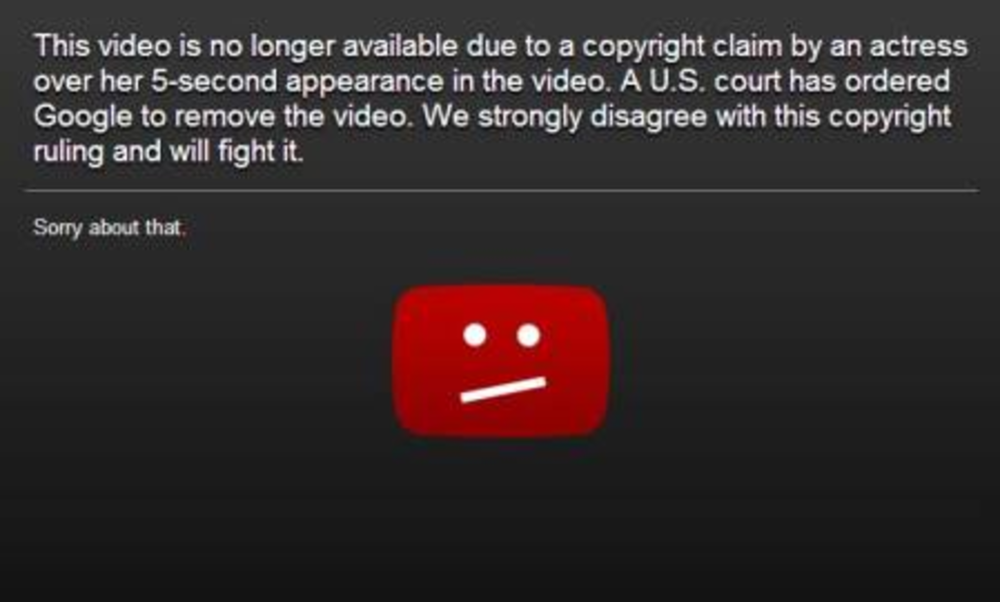After all the protests, pleas from the White House, government bans and threats, the one thing that got an anti-Islamic film removed from YouTube was a mere copyright lawsuit.
Yesterday, a California appeals court ordered Google to take down all uploaded clips of a controversial anti-Islamic movie titled Innocence of Muslims, ruling in favor of an actress in the film who claimed a copyright violation.
Released in 2012, the film triggered massive protests by Muslims around the world as it contained a blasphemous depiction of the Prophet Muhammad. It led to YouTube being banned in several countries, as Google refused to take down the video citing freedom of speech.
However, actress Cindy Lee Garcia, who appears for five seconds in the movie was able to claim a copyright violation in a complicated argument. Garcia made the case that since her lines had been dubbed and the film was so dramatically different to the one she had agreed to make, she retained a copyright claim that YouTube must respect. In the film, Garcia is shown to be asking another character “Is Muhammad a child molester?” She claims she has received death threats due to her participation in the film.
s you can expect, Google isn’t thrilled about this, not just on the basis of freedom of speech, but crucially, this ruling sets precedent for any small bit player or actor in a YouTube clip filing a copyright lawsuit against the platform. This could potentially jeopardize a huge amount of content and entangle the company in several court appearances. Think of anybody walking in the background of a viral prank, a casual cell phone video someone takes of a crowd, or concert footage where the camera shows someone in the audience. In a statement, a Google spokesperson said, “We strongly disagree with this ruling, and we will fight it.”
For the vast majority of YouTube clips, the only people who can claim copyright are the authors of the content, such as directors, producers, and writers. However, in the decision, Chief Judge Alex Kozinski said this was a special case where a minor actor was entitled to copyright protection, mostly because she had been duped into appearing in something she hadn’t explicitly agreed to.
“This is a troubling case,” Kozinski wrote in the court’s decision. “Garcia was duped into providing an artistic performance that was used in a way she never could have foreseen. Her unwitting and unwilling inclusion in Innocence of Muslims led to serious threats against her life. It’s disappointing, though perhaps not surprising, that Garcia needed to sue in order to protect herself and her rights.”
However, Garcia did say the decision did not necessarily set a precedent.
“We need not and do not decide whether every actor has a copyright in his performance within a movie,” wrote Kozinski. “It suffices for now to hold that, while the matter is fairly debatable, Garcia is likely to prevail.”
Here is a copy of the court’s ruling.







